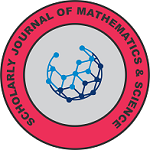Mark Mishiwo
Akatsi College of Education, Akatsi
Abstract
Teaching efficacy beliefs have been the focus of teacher education studies for some decades as one of the most important factors affecting teachers’ behaviours, attitudes and effectiveness. The study sought to use quantitative study to investigate the effect of methods of teaching mathematics course on the pre- service teachers’ teaching efficacy beliefs in Akatsi College of Education. The questionnaire for the study made use of Mathematics Teaching. The purpose of this quantitative study was to investigate the effect of methods of teaching mathematics course on the elementary pre-service mathematics teachers’ mathematics teaching efficacy beliefs in Turkey. Mathematics Teaching Efficacy Belief Instrument was administered to 172 junior elementary mathematics education students as pre-test and post-test prior to and after the methods of teaching mathematics course. The course was carried out through demonstrations, direct instructions and classroom discussions during 14 weeks. The values indicated that the distributions of the pretest and posttest scores, and gain scores for the whole group for PMTE and MTOE were approximately normally distributed. Paired sample t-tests were used to analyze the data and indicated that the methods of teaching mathematics course significantly increased the pre-service teachers’ mathematics teaching efficacy beliefs. Consequently, it was recommended that further research should involve knowledge of content teaching fractions, so that pre-service teachers’ knowledge of content for teaching fraction, rather than allowing them to rate themselves on their beliefs without the actual test.
Keywords: Pre-Service Mathematics Teacher, Mathematics Teaching Efficacy Belief, Methods Of Teaching Mathematics Course

